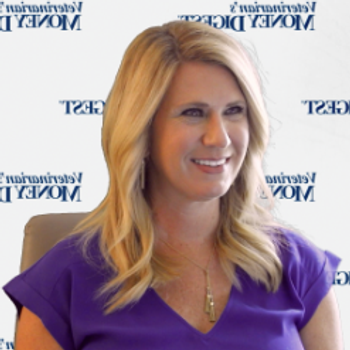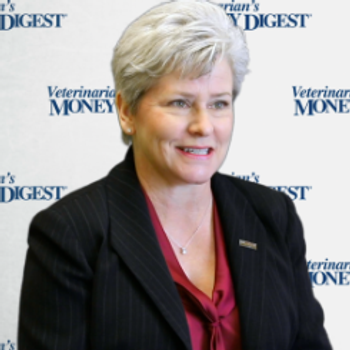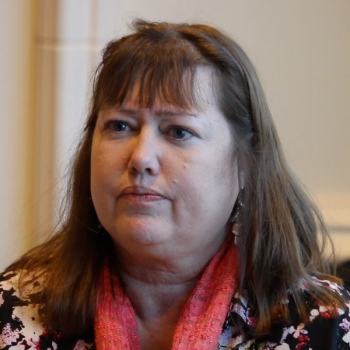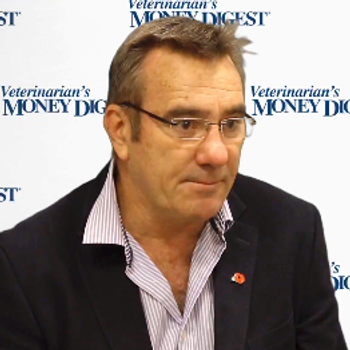
Use these quick tips to implement Fear Free in your veterinary practice.

Fostering a culture of empowerment at your veterinary practice starts with recruiting the right people.

At Fetch dvm360 conference, Dr. Betsy Charles uses radiology to help veterinarians reflect on their feelings and experience in veterinary practice.

These cases can become critical quickly.

How do you, as a veterinarian, know if you're providing a good service?

Dogs exposed to ticks infected with Borrelia burgdorferi or exposed to ehrlichiosis have an increased risk of developing chronic kidney disease.

Wendy Hauser, DVM, assistant vice president of veterinary relations for Crum + Forster Pet Insurance Group, says more veterinary practice owners should be offering pet health insurance to their employees.

Generally speaking, Vickie Byard, CVT, VTS (Dentistry), veterinary technician dentistry specialist at PetED Veterinary Education and Training Resources, says most pets should receive dental examinations annually.

Research has shown that when new veterinary graduates enter their first practice, they experience high levels of stress and mental distress.

Stop the self-sabotage and guide the veterinary clinic from a position of self-awareness.

Matthew Krecic, DVM, MS, MBA, DACVIM (SAIM), senior technical services manager for Zoetis, says we're starting to see molecular diagnostics being used more in the veterinary practice.

Veterinary professionals are very empathetic, but they’ve been told not to project that empathy to clients.

Amy L. Pike, DVM, DACVB, chief of the Behavior Medicine Division at the Veterinary Referral Center of Northern Virginia, explains some of the most common compulsive disorders in dogs and cats.

Jeremy Gransky, DVM, veterinary officer for MVS Pet Care, says mobile practices can provide great comprehensive care in a house-call setting.

This veterinarian gives some practical tips for maximizing upper GI endoscopic examinations and biopsy of the esophagus and stomach in dogs and cats.

When it comes to marketing dental care, there's a lot of room for improvement among veterinary practices.

It's gotta be a serious violation, says Dr. Karen Bradley. Where does the fault lie with most of these problems? Poor training and coaching. Fix that first!

There are a number of herbal courses available to veterinarians at a continuing education level, says Narda G. Robinson, DO, DVM, MS, FAAMA, president and CEO of CuraCore Integrative Medicine and Education Centers.

Steve Weinrauch, BVMS, MRCVS, founder of MightyVet, explains how MightyVet is more than just a support group for veterinarians — it's also a support group for veterinary schools.

Bill Schroeder, senior vice president of InTouch Practice Communications, says veterinary practices always ask him the same question: "How can I get my videos in front of more eyes and commented on?"

Collapse in dogs is one of the most frustrating things veterinarians see in the emergency room, and collapse is unfortunately common.

There are many things veterinary practices can do to identify financial issues before they harm their practice.

Janet McConnell, CVT, director of education and professional development at Compassion-First Pet Hospitals, says becoming certified for Free Free is easy—and a lot of fun.

There is a desire from animal shelter administrators to create closer partnerships with local veterinarians.

Building a successful team in your veterinary practice starts with leadership, but next comes hiring.

Cat owners need help simply getting kitties to your veterinary clinic's door.

Making sure you're equipped for feline trauma is really minimal, says Alison Gottlieb, BS, CVT, VTS (ECC).

The movement from stainless steel kennels to fiberglass kennels is growing.

Karol Mathews, DVM, DVSc, DACVECC, professor emeritus of clinical studies at Ontario Veterinary College at the University of Guelph, says humans and animals can receive similar treatments for kidney injuries.

Much like veterinary schools in the United States, veterinary schools in the United Kingdom have full course loads that leave little room for business management courses.